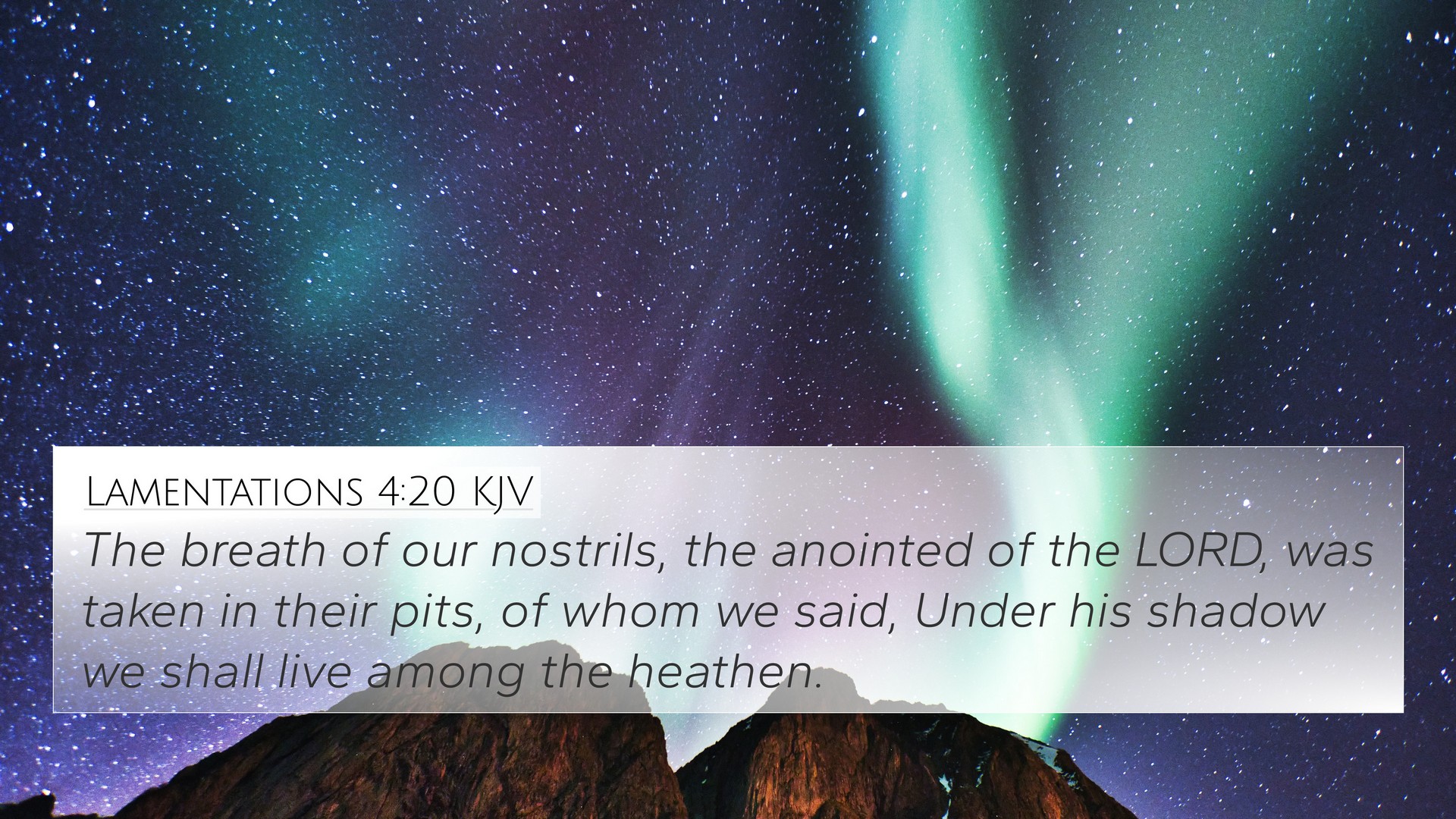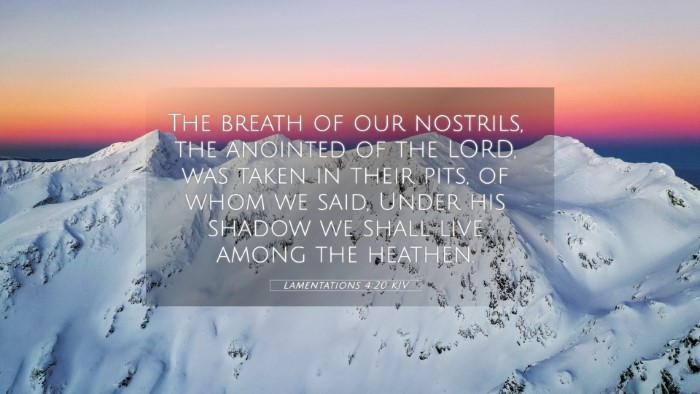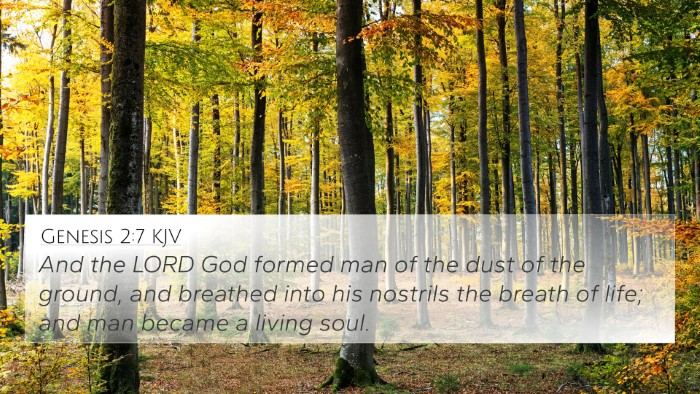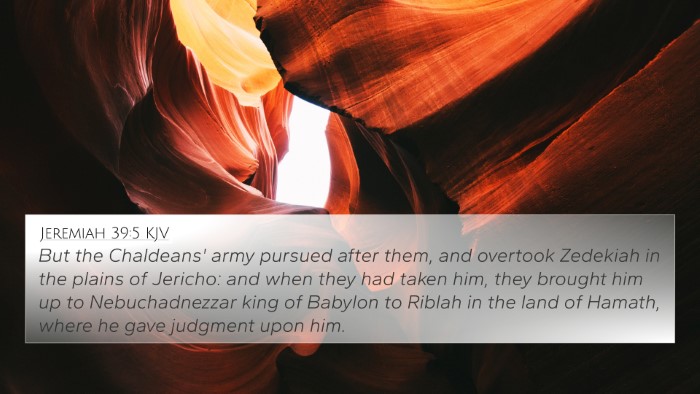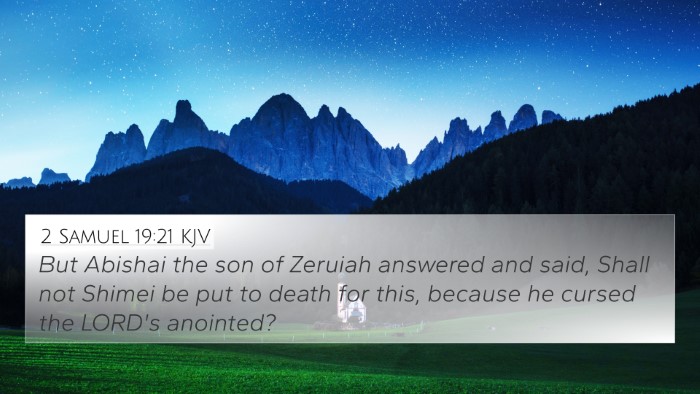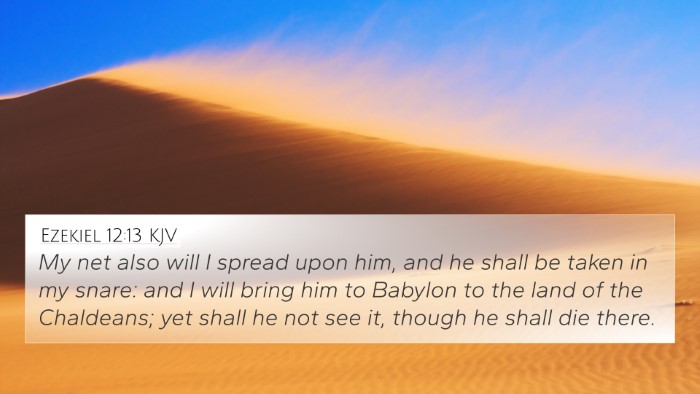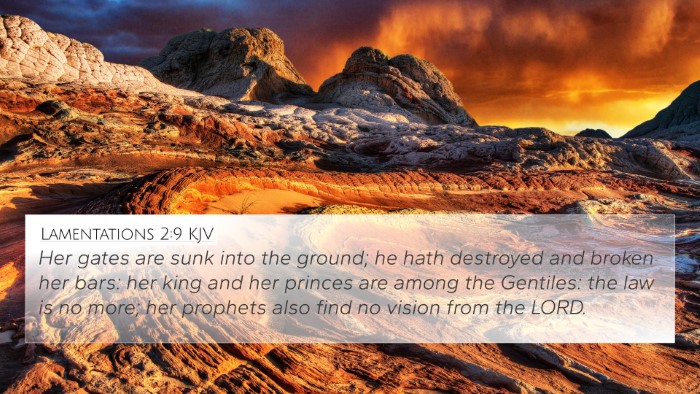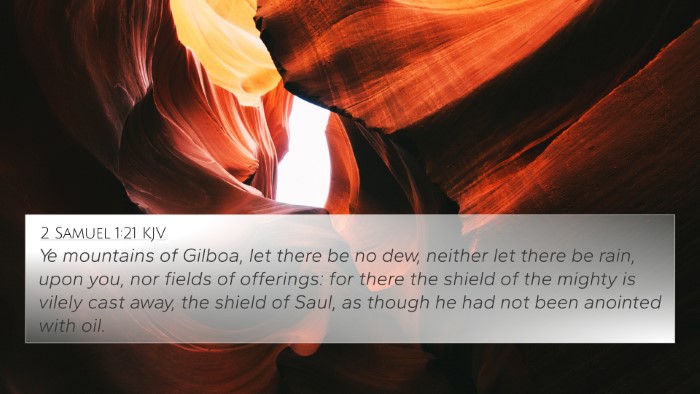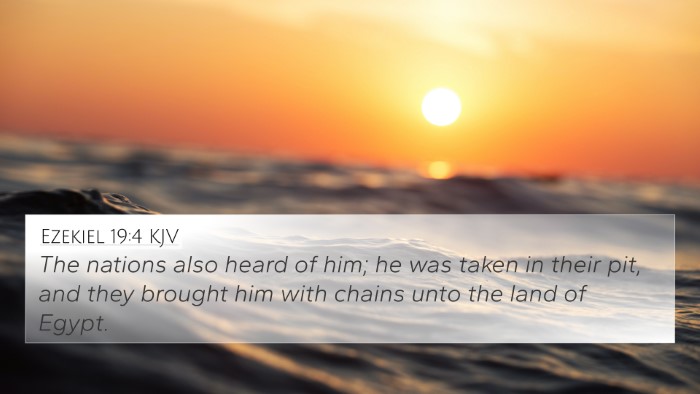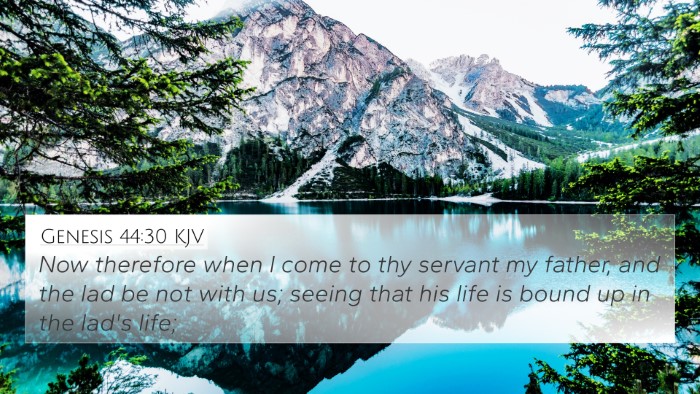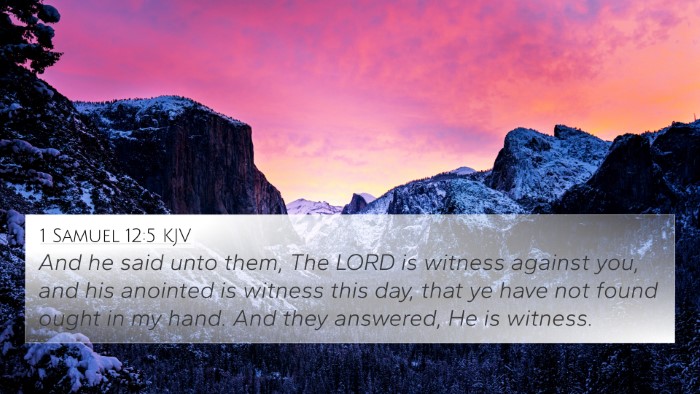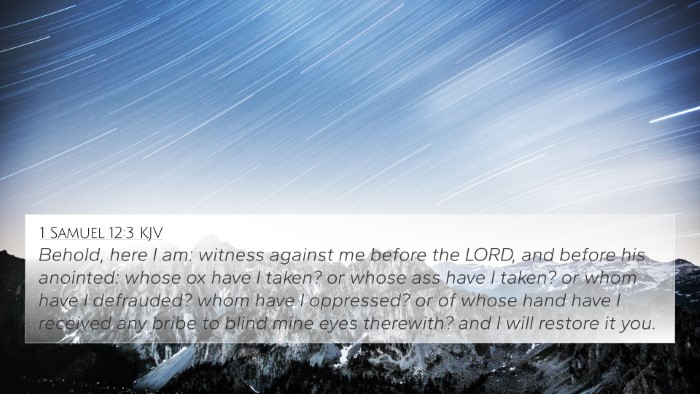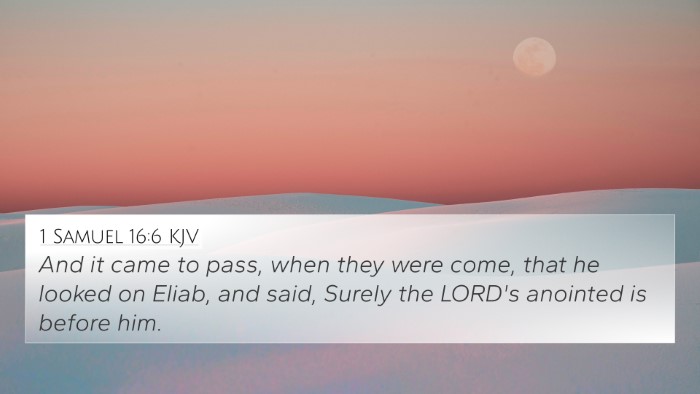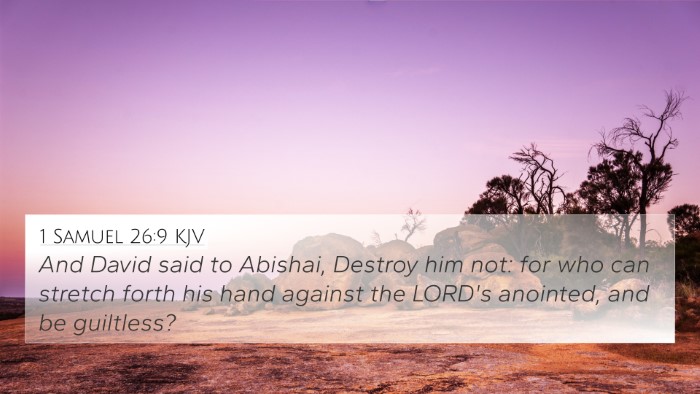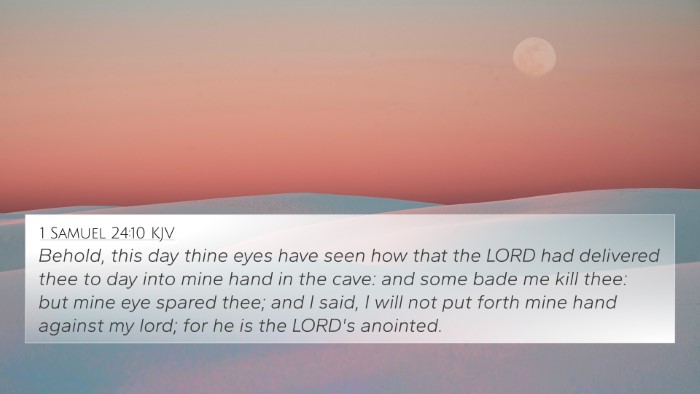Lamentations 4:20 - Summary and Commentary
Lamentations 4:20 states, "The breath of our nostrils, the anointed of the LORD, was taken in their pits, of whom we said, Under his shadow we shall live among the heathen." This verse encapsulates profound sorrow and loss experienced by the people of Judah during the Babylonian siege. It signifies the devastation of their earthly hope and the seemingly insurmountable grief that follows.
Context and Interpretation
This verse is situated within a chapter of mournful lament, reflecting upon the utter destruction and suffering inflicted upon Jerusalem and its inhabitants. The "anointed of the LORD" is often understood to refer to the king or a divinely chosen leader, highlighting the despair in losing such a pivotal figure who provided protection and favor.
Matthew Henry's Commentary
Matthew Henry indicates that this lamentation is for the loss of a leader, whom the people saw as a source of hope and safety. The absence of this figure left them vulnerable in a hostile environment, persisting amid the oppressive circumstances surrounding them. The "breath of our nostrils" signifies not only the physical life provided by this leader but also the spiritual sustenance and hope he represented.
Albert Barnes' Insights
Albert Barnes emphasizes the dual aspect of the verse—the physical peril and spiritual desolation. He notes that the distress of the Israelites stems from the loss of God's chosen leader who served as a rallying figure during calamity. The term "pits" conveys the depth of their despair, as they felt trapped with no means of escape or avenue for divine intervention.
Adam Clarke's Observations
Adam Clarke elaborates on the imagery presented in this verse, suggesting that the "shadow" is an allusion to protection and security offered by God through His anointed. This metaphor illustrates their yearning for divine shelter in the face of overwhelming external threats, and the abandonment they felt following the loss of their leader.
Cross-References and Thematic Connections
This verse can be linked with several other Biblical texts that enhance the understanding of the themes presented:
- Isaiah 59:2 - Reflects on the separation caused by sin, paralleling the spiritual desolation felt by the people.
- Jeremiah 3:15 - Discusses the provision of shepherds, highlighting the importance of leadership during trials.
- Psalms 91:1 - Emphasizes the shelter and safety found under God's protection.
- Lamentations 3:24-26 - Expresses hope in God's faithfulness amidst sorrow.
- 2 Samuel 22:31 - Acknowledges God as a protector and refuge, mirroring the desire for security expressed in Lamentations.
- Micah 5:4 - Speaks of a ruler in Israel providing safety and security to the people.
- Isaiah 53:3 - Prophetic reference to rejection, paralleling the humiliation and despair faced by the leaders.
- Matthew 27:46 - Reflects the anguish felt in the absence of divine presence, similar to the emotions expressed in Lamentations.
- John 16:33 - Promises peace in Christ amid suffering, which contrasts with the despair in Lamentations.
- Revelation 21:4 - Offers hope for a future where sorrow and loss are eliminated, contrasting the current lamentation.
Thematic Bible Verse Connections
In examining Bible verses that relate to each other, we discover profound themes of suffering, loss, leadership, and divine guidance. The interactions among these verses provide insights into the broader narrative of God’s relationship with His people, notably during times of peril. Here are some insights related to these themes:
- Loss of Leadership: Many verses in both the Old and New Testament echo the pain of losing a righteous leader, highlighting the need for divine intervention.
- Divine Protection: The common motif of seeking refuge under God's wings links various distressed situations across scripture.
- Hope in Despair: Numerous scriptures provide reassurance of God's promises even amidst darkness, encouraging believers to hold fast in faith.
How to Use Bible Cross-References
For those exploring the verse, understanding the interconnections is crucial. Here are some tools for Bible cross-referencing:
- Bible Concordance: A useful reference to locate terms and themes across the scriptures.
- Bible Cross-Reference Guide: A resource that details thematic connections and parallels.
- Bible Reference Resources: Tools designed for scholars and laypersons alike to navigate scripture.
- Cross-Reference Bible Study: Methods employed in small groups or personal study to delve deeper into themes.
User Intent and Related Questions
When studying Lamentations 4:20, some may ask:
- What verses are related to Lamentations 4:20?
- How do Lamentations 4:20 and Jeremiah 3:15 connect?
- Are there similarities between Lamentations and Isaiah regarding suffering?
- How can I look up cross-references for specific Bible verses?
Conclusion
Lamentations 4:20 is a poignant reminder of the collective grief experienced by God’s people in times of crisis. It serves not only as historical context but also as theological reflection. By engaging in cross-referencing biblical texts, one can uncover deeper meanings and insights, revealing the interconnectedness of scripture throughout the narrative of faith.
